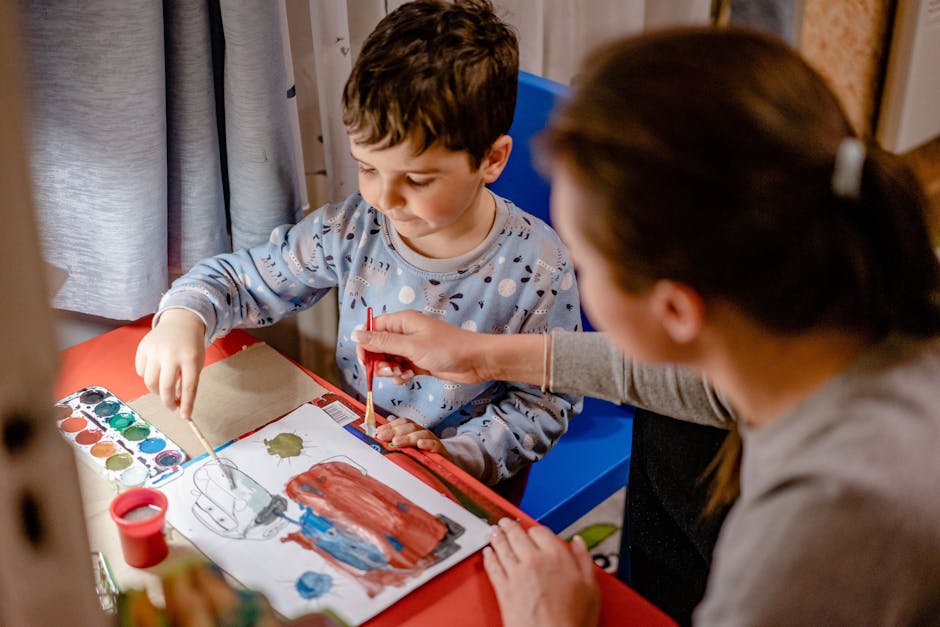Parenting is a complex, often solitary journey. The challenges are myriad, from the sleepless nights of infancy to the anxieties of adolescence. Amidst these trials, the presence of extended family can offer a vital support network, potentially fostering deeper and more resilient bonds within the family unit. This article explores the intricate relationship between extended family involvement and the strength of familial connections, delving into the nuanced ways in which grandparents, aunts, uncles, and cousins can contribute to a richer, more supportive family environment.
The tapestry of familial relationships is rich and varied, woven from threads of shared history, mutual respect, and unspoken understanding. Extended family members, often with their own unique experiences and perspectives, can provide a unique and valuable contribution to this tapestry. Their involvement doesn’t simply offer practical assistance; it can enrich the emotional landscape of the family, contributing to a stronger and more cohesive unit.
A cornerstone of this support lies in the provision of practical assistance. Grandparents, particularly, can contribute significantly by offering childcare, allowing parents to pursue personal interests or professional opportunities. This support is crucial during periods of transition, such as the arrival of a new baby or the onset of school-age challenges. It’s not just about babysitting; it’s about providing a sense of shared responsibility and camaraderie, demonstrating the value of intergenerational cooperation. Aunts and uncles, too, can step in during times of need, providing emotional support and practical assistance, particularly in times of crisis.
However, the impact of extended family support extends far beyond the provision of material resources. A key aspect is the fostering of close-knit relationships. Consistent interaction, whether through regular visits, shared holidays, or participation in family activities, builds a strong sense of belonging and connection. Children who spend meaningful time with their extended family often develop a broader understanding of their heritage and cultural traditions. This shared experience, this sense of belonging to something larger than the immediate family, is a foundational element in the development of a robust sense of self and security.
This impact is particularly profound in the case of close relationships with grandparents. Grandparents frequently serve as invaluable sources of wisdom and guidance, offering a different perspective from the immediate parents. Their experiences, their understanding of life’s lessons, and their unconditional love can greatly influence a child’s development and emotional well-being. The development of close intergenerational relationships, in which children and grandchildren spend quality time learning from and bonding with their elders, is essential for emotional growth and intellectual development.
The potential benefits, however, are not without their nuances. A common concern arises regarding the potential for conflict. Differing opinions on parenting styles or discrepancies in values can create tension within the extended family. To mitigate these risks, clear communication and mutual respect are paramount. Family meetings or open dialogues can be highly constructive in establishing shared expectations and understanding between generations. These efforts ensure that extended family support is collaborative and not a source of conflict. Boundaries need to be set and respected in such a way that the support provided doesn’t infringe on the parents’ ability to raise their children according to their own beliefs.
An equally significant consideration revolves around the balance between support and interference. Extended family members often harbour a desire to assist, but this assistance can be detrimental if not provided thoughtfully. Navigating this delicate balance is essential for both parents and extended family members. Parents must clearly communicate their needs and preferences regarding support, while extended family should be respectful of those boundaries.
Furthermore, the impact of extended family support is not universally positive. The quality and nature of relationships are crucial factors. If those relationships are characterized by negativity, conflict, or a lack of respect, the potential for harm is substantial. In these instances, extended family involvement might actually be detrimental, perpetuating existing issues or creating new ones. Identifying and addressing potential issues proactively is critical for fostering a supportive and harmonious environment.
A holistic approach to understanding the role of extended family support involves acknowledging cultural variations. In some cultures, extended family plays a central role in daily life, and the level of involvement is far more significant than in others. Understanding the cultural context within which extended family operates is key to ensuring that support is both effective and culturally sensitive.
Ultimately, the question of whether extended family support creates stronger bonds is not a simple yes or no. It is a complex interplay of factors, including the quality of relationships, the cultural context, the communication dynamics, and the individual needs and preferences of all involved. While the potential for positive reinforcement and shared experiences is considerable, potential conflicts must be acknowledged and proactively addressed. Ultimately, a conscious and well-managed engagement with extended family is crucial for cultivating a strong, resilient, and supportive family environment. The strength of the bonds forged within the extended family often directly correlates with the health and well-being of the entire family system.
